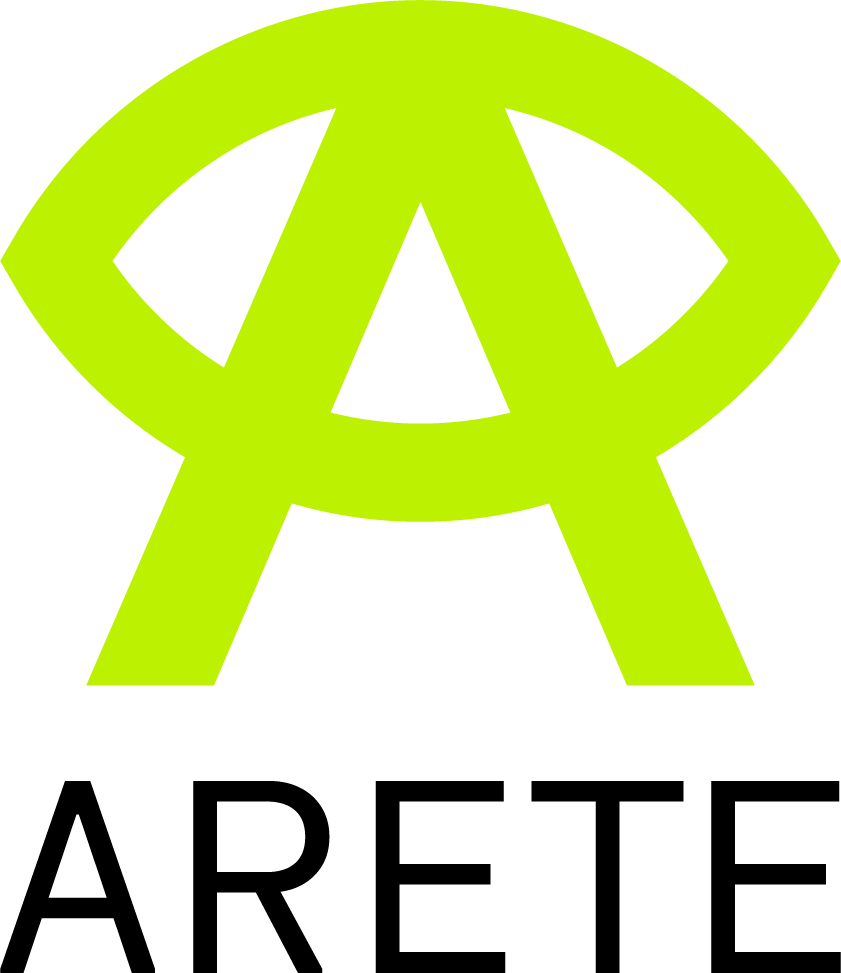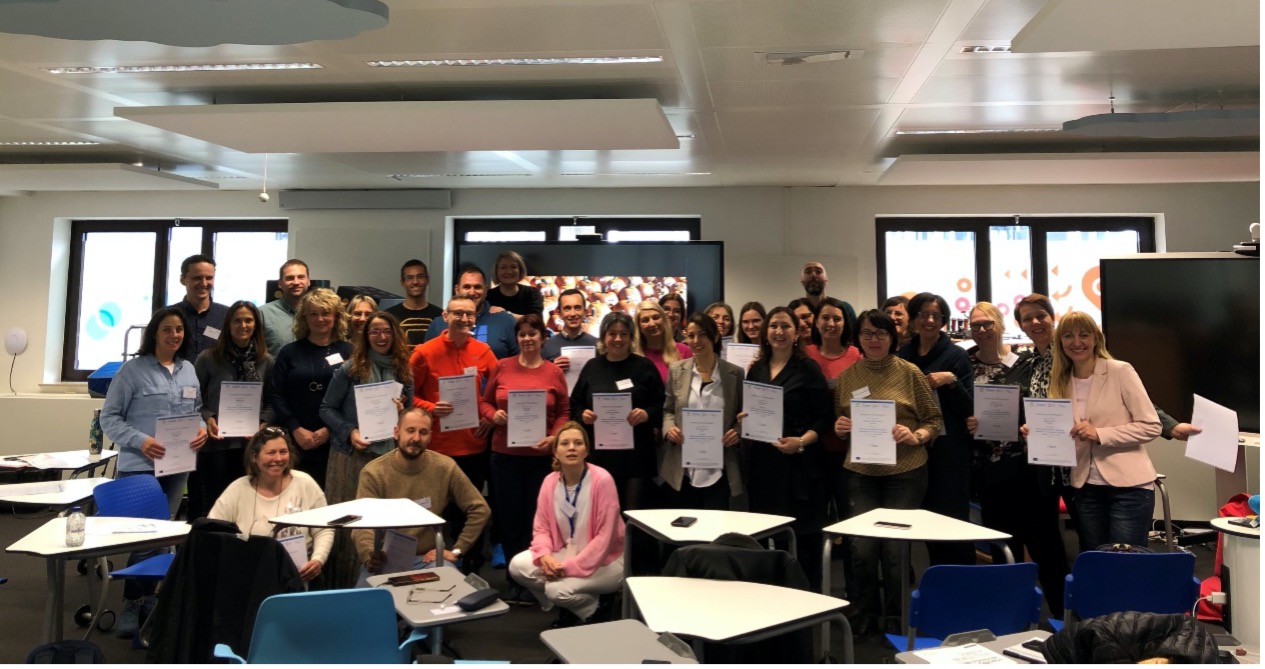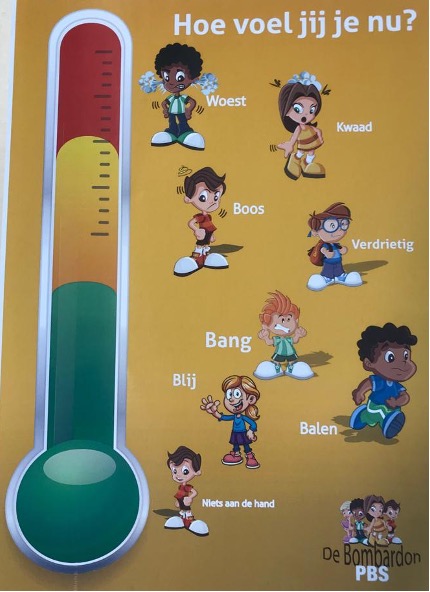APBS Conference Jacksonville, Florida & closing ARETE project Pilot 3
- 20th APBS Conference, Jacksonville, Florida;
- Presenting preliminary results at APBS Conference
- Interviews with teachers & pupils, after Round 2 (AR condition) of Pilot 3
The conference
The 20th edition of the Association of Positive Behaviour Support (APBS) conference was hosted in Jacksonville, Florida at the end of March. The Dutch ARETE team had the chance to join the volunteers at the conference, who helped the organizers making the conference a smooth experience for everyone. Visitors from all over the globe gathered to listen to seminars, participate in workshops and present their work related to Positive Behavioural Interventions and Support (PBIS). The conference brought different fields together ranging from PBIS in early childhood and teaching in primary education to research on cognitively impaired adults working with PBIS.
Meeting up with (new) fellow colleagues
The conference was a perfect way to meet up with fellow colleagues who are in some way connected to PBIS. This allowed for interesting conversations and sharing of experiences between teachers, researchers, policy makers, caregivers and others who are affiliated with PBIS. Also the poster sessions in which studies were presented lead to interesting dialogues. For example about finding validated metrics to assess the feasibility of successful school wide PBIS (SW-PBIS) implementation at an organizational level, or revising PBIS values to current and changing socio-behavioural standards.
Seminars
During the conference’s seminar sessions we had the chance to learn about various different topics which highlighted many different angles. For example, Sarah Leitch, Director Of Development at Bild & Restraint Reduction Network, presented her work, where she explained the difficulties and misinterpretations of PBS implementation in the United Kingdom (UK). She addressed how PBS is historically perceived as a crisis intervention mode for intellectual and developmental disabilities in the UK. Sarah presented how this informs a new view which supports socially valid and equitable outcomes. Yet another, quite different, interesting topic was presented by Hannu Savolainen, professor of special education form the University of Eastern Finland and his team. Here they studied PBS in early childhood in a randomized control trial, showing the efficacy of the intervention using qualitative analysis to highlight the longitudinal progress of development.
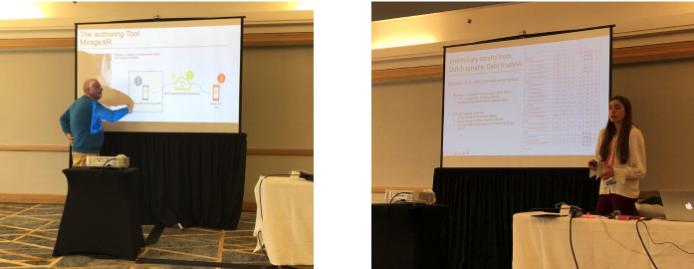
During the final sessions of the conference, the ARETE team was given the opportunity to present the work of the last few years. The presentation was hosted by ARETE team members: Sui Lin Goei, Crispino Tosto and Lara Engelsman.
Although the data collection was in progress at the time of presenting, an overview of the first preliminary results were shown accompanied by a showcase of the developed augmented reality (AR) PBIS application. During a brief interactive session, the audience had the chance to experience working with augmented reality in PBIS. Several displayed AR scenario’s which were projected in the conference room. The audience enthusiastically participated and learned how students have worked with the AR application.
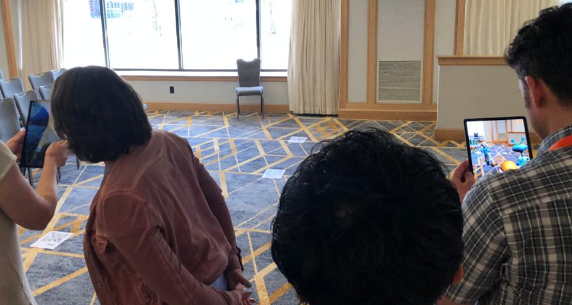
Interviews with Dutch schools after round 2 (AR condition) of the project: Qualitative results from pupils and teachers.
To assess possibilities in further development of the AR PBIS application, qualitative data is important to learn about the teacher’s and pupil’s experiences during the AR PBIS lessons.
Given the young age of the newly developed augmented reality application, we as a team were eager to learn in what way we are on the right track with the application and where further development is needed. To learn this we conducted interviews with both teachers and students who used the AR application throughout their PBS lessons in round 2 of ARETE’s Pilot 3 project.
Teacher’s view on the augmented reality application:
General impressions
The general impressions of the teachers about working with the augmented reality application in PBS lessons revealed both positive aspects as opportunities for further development.
Teachers who worked with the application were experiencing several issues with certain bugs that were present after the app’s swift development phase. Certain play modes were sometimes skipped by the teachers during the lessons, but what stood out was the user friendliness of the Discovery mode. Here teachers had good experiences scanning QR codes and letting the children work with the displayed scenarios. At times the application could be tricky to work given the bugs that were present, but teachers remained positive: teacher: "Well I think if the application is working, it's really fun. I really believe that too, because it's something different anyway, something new, that always does well..”
Increasing compatibility
Multiple teachers mentioned that the application could be made a bit more challenging for their students. In response to this we asked how we could make the app more compatible with the upper grades (9-12 years old):
Teacher: “By making the application more complicated I think, that's where the value lies. Where it's currently going, I really like that idea completely. I'm an ICT person myself so I totally like it all. I think the value lies in kids doing the lessons themselves. So with the Mirage application, when it works sufficiently, that the children themselves can create behavioural scenarios for the pre-schoolers. That the pre-schoolers can do it. So that the children learn to program in the application. I think there's a lot of extra benefit in that, because then there is deeper thinking. I think that would be a very nice addition, but that is still very far away now I think.”
Student’s view on the augmented reality application:
Students explained what they liked about the application. They indicated that working with augmented reality, seeing a projection in real time, was very compelling. In addition, they liked the movement aspect of the application, and mentioned the following:
Student 1: "I did think it was a lot of fun... more fun than sitting in your chair all the time.” Student 2: "Yes that was fun!".
The students mentioned they looked forward installing the application on their own devices.
Also the students did mention areas for improvement, as they encountered the same technical issues as the teachers, such as bugs, calibration and sizing errors and necessary rebooting procedures, making working with the application difficult at times. Secondly, the students reported they were ready for a higher degree of difficulty and/or complexity within the application. In conclusion, the interviews provided useful feedback and insights for further development of the augmented reality PBIS app.
As for now, the project as reached it’s conclusion of the final phase. Further conversations are ongoing to discuss the potential continuation of the developed AR applications within a new project.
